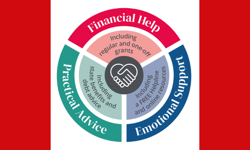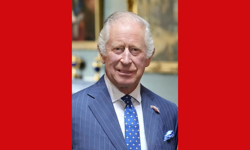Carolyn McCall started off by touching on the nature of competition, from the perspective of a national newspaper publisher. In the ‘old media’ world, competition was fierce but simple. There were a limited number of players in a clearly defined market. Competition was about "incremental shifts in a mature market, with the occasional violent shift like the launch of the Indie, or the Times initiated price war."
Competition in the ‘new media’ world is altogether more complicated. Where, previously, there were few competitors, now there are many. Previously they were clearly defined (they published newspapers), now they come in many forms. Broadcasters, with whom national newspapers only competed indirectly before are now in direct competition. And there were few surprises. With the possible exception of the Independent launch, which did catch some in the industry off-guard, generally speaking you could see potential rivals coming a mile off. After all, you can count the number of new national newspaper launches in the last 20 years on the fingers of one, possibly, two hands. Now, two guys playing around in a garage today could well be the next big thing tomorrow … and eating into your profits. There are no certainties. Not only are new competitors emerging from left, right and centre, but the relationship between online players is complex. One day you will be forging partnerships, the next you will be in head-to-head competition. The online world is a "myriad of power struggles and collaborations."
In the online environment, size can be a disadvantage, especially for those large media players with "legacy media operations, still slugging it out in their traditional markets." Whereas traditional media is facing a period of transition, it is much simpler for ‘pure players’ who can act and react, without having to consider the implications for their offline businesses.
For companies with strong media brands, Carolyn says, the online world presents a number of opportunities:
1. Multi-media.
Previously, newspaper publishers were in the business of creating text and pictures – now they are actively involved in all media. The Guardian has set up Guardian Films and their reporters out in the field are now filming their reports.
2. Global pretensions.
The Guardian’s aim is to be the "leading liberal voice in the world." Such a vision could only be possible with the internet.
3. Community.
Passive audiences are now being profitably moulded into communities. The Guardian has set up a travel site, Been There, and the content is provided by thousands of user generated recommendations. The result is the foundation of a Guardian travel community and a valuable resource. Such trends "will lead to new business models, which we will have to define."
What of the challenges ahead? Carolyn highlighted five:
1. Vision.
Companies need vision, especially at the top of the organisation. Senior managers need, also, to "take people with them at all levels." Even in web-literate companies like the Guardian, there are large numbers of people ignorant and frightened of all things online. This needs to be addressed through training and communications, because "the net is not optional."
2. Build on your brands and talents.
Buy and grow the best talents. In the "era of convergence, we will become knows not by the media but by the brand."
3. Stay close to your readers / viewers / listeners.
4. Innovate to learn.
"With the exception of the consumer magazine category, much of the media world is scared of screwing up. Publishers need a constant stream of new activity and a willingness to experiment." Whenever she is asked whether Channel M, GMG’s Manchester based TV station, will work, Carolyn replies "I’ve no idea. We have to give it investment legs and not stifle it with too high RoI targets."
5. Excel at software development.
"Our best developers are as important as our best journalists – without them we can not get the content on to all the different platforms."
6. Drive revenue growth.
We need to grow profits quickly. "Scale is important, internally for respect and also, when the slowdown arrives, we want to be as high up the curve as possible."
One theme running through Carolyn’s talk was the ‘absence of certainties’. In the future, there will continue to be "radical disruptive change to companies. The next three to five years will be as disruptive as the last three to five." You have to give journalists the tools to thrive in the new environment and that means multi-media newsrooms – like the one they have just moved their Manchester operation into. Investment is important and it would be unwise to "take out too much cost at this fragile stage." Consumers need to be given choice, and the task for publishers is to make sure that their content is so good that they choose you!
| You can view a full video stream of Carolyn’s presentation, and that of Tim O’Reilly, at: www.ukaop.org.uk/McCallVideo |










